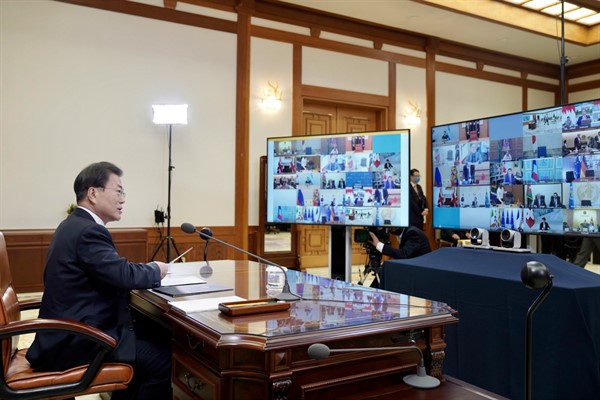VIENNA—Multilateral diplomacy is a complex process, and its success depends on interpersonal relationships that are forged during numerous formal and informal gatherings, including conferences, lunches and receptions. During difficult negotiations, the most sensitive sticking points are often ironed out informally, in corridors or lounges.
For example, during talks to create a European common market in February 1957, French Prime Minister Guy Mollet and German Chancellor Konrad Adenauer made important progress during a walk they took in the gardens of the Hotel Matignon in Paris, where the talks were being held. Their informal discussions paved the way for the signing of the Treaty of Rome the following month, officially creating the European Economic Community.
The coronavirus pandemic has made such breakthroughs impossible. Face-to-face meetings have become rare, as diplomacy is almost exclusively conducted through teleconferences. But what are the consequences of this new form of virtual diplomacy? Could world peace and international security be at risk as a result of the interruptions?

